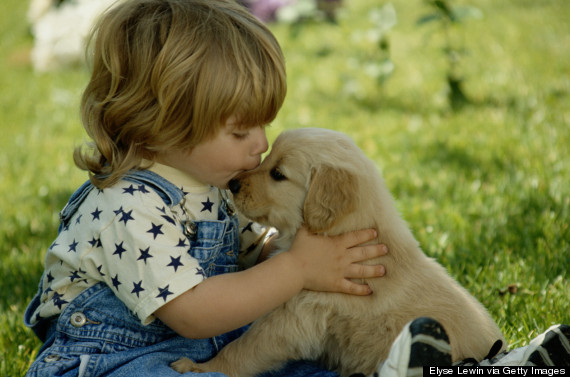
What parts of our life will increase the stress of our companion pets? Here are a few examples:
Interpersonal Stress
Troubled Kids
Significant Loss (especially of a master)
Moves
Changes in the Home
Natural Disasters
These are all natural occurrences in life, but they can negatively impact our pets as well as us.
Knowing When Your Dog is Stressed
Many of the signs of extra stress in your dog may also be connected to other problems. Ignoring them could be hazardous for your pet. Here are a few of these signs to watch for:
Self Chewing - while most companion pets will chew a little as a form of cleaning, excessive chewing is indicative of high stress.
Destructive Behavior - While some dogs are naturally inclined to some destructive behavior, this would be in excess of what's normal for your companion pet.
Anxiety when separated from you.
Lack of appetite and refusal to open mouth.
Diarrhea or constipation.
Unusually passive behavior including keeping tail between the legs or avoiding eye contact.
The time to be concerned with these behaviors is when they become excessive or increased from what's normal. If you do see an increase, start evaluating the stress factors your companion may be experiencing.
Physical Effects
Just like humans, exposure to a highly stressful environments and situations can take a physiological toll on your dog. These can include:
Ulcers
Stress related diarrhea
Stomach Upset
Skin irritation
Helping Your Dog Deal with Stress
While we may just have to muscle through stress, we can often help our pets so they remain happy and healthy. Here are some tips on how:
Give your dog "happy" attention
Dogs have the ability to help us feel better when we're down due to their physical empathy. While this may help the master a little, if this is habitual it has a severe negative impact in the psychological wellbeing of the animal. The solution is to "fake" happiness when you're with them, much like you would with a toddler.
Board your dog
While in the process of changing your dog's environment, consider boarding them for a short time. While dogs are great at adapting to new environments, they don't deal well with the change process. Removing them from a chaotic environment will help reduce their stress.
Socialization will decrease stress.
Make use of a dog park or a doggie daycare several times a week to help ensure your pet is getting enough socialization.
Be sure to give your dog the help they need for coping with stressful times. This will help ensure a longer, happy life for both of you.
No comments:
Post a Comment